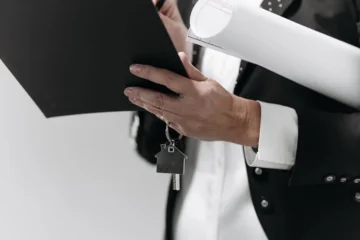Navigating the world of 1031 exchanges and revocable trusts can be daunting, especially when you’re trying to protect your property during the process. This guide will break down everything you need to know, presenting it in a straightforward and approachable way.
Understanding Revocable Trusts
A revocable trust is a legal entity that allows you to manage your assets during your lifetime. It’s flexible, allowing changes or termination if your circumstances change.
The beauty of a revocable trust lies in its simplicity and the fact that it can help you avoid probate, which can be a lengthy and costly process. By placing your property in a revocable trust, you keep control over these assets, and they’re distributed as you wish upon your passing.
However, it’s crucial to note that while a revocable trust offers control and flexibility during your lifetime, it doesn’t shield your assets from creditors. Creditors can still make claims against assets within the trust.
Basics of a 1031 Exchange
A 1031 exchange is a tax-deferral strategy used by property investors. It involves swapping one investment property for another, deferring capital gains taxes in the process.
Many investors are drawn to the 1031 exchange because it offers a pathway for deferring taxes on gains from the sale of investment properties. It’s a powerful tool for real estate investors looking to grow their portfolio without the immediate tax burden.
It’s important to adhere to strict timelines and criteria set by the IRS for a 1031 exchange. The replacement property must be identified within 45 days and the transaction completed within 180 days of the initial sale. This process requires guidance to ensure compliance and maximize benefits.
Can a Revocable Trust Hold Property for a 1031 Exchange?
Yes, a revocable trust can hold property involved in a 1031 exchange. However, it’s important to ensure that the trust structure is correctly set up so that it doesn’t disrupt the exchange process.
The key aspect here is that the trust itself must be considered the same tax entity as the individual conducting the exchange. This is why it’s essential to have the guidance of a knowledgeable attorney or tax advisor who can align the revocable trust with 1031 requirements.
If the sole beneficiary of the trust passes away, the trust becomes irrevocable, which can complicate or nullify the 1031 exchange. Therefore, clarity in terms and understanding of subsequent consequences is crucial.
Protection Limitations of a Revocable Trust During 1031 Exchange
While revocable trusts offer control and flexibility, they don’t inherently protect against creditors or offer significant tax advantages in a 1031 exchange. Consider additional legal structures for more robust protection.
It’s critical to understand that revocable trusts don’t provide asset protection. Creditors can still target assets within the trust, making it important to explore other legal structures if liability protection is a concern during a 1031 exchange.
For those seeking stronger asset protection, exploring options such as Limited Liability Companies (LLCs) or other irrevocable trusts might be necessary. These structures can offer added layers of protection absent in a standard revocable trust.
Consulting Professionals for the Best Strategy
It’s advisable to consult with a tax advisor or estate planning attorney. They can provide tailored advice on how to best use a revocable trust in conjunction with a 1031 exchange.
Consulting a professional who understands the intricacies of both estate planning and real estate transactions can prevent costly mistakes. These experts offer invaluable guidance on ensuring your revocable trust aligns with IRS requirements.
For more detailed insights and assistance, exploring our estate planning services can provide the clarity and support you need. Our team is dedicated to helping you make informed and effective decisions.
Final Thoughts on Using a Revocable Trust in a 1031 Exchange
While a revocable trust can offer some advantages when it comes to estate planning, it doesn’t provide the complete protection your property might need during a 1031 exchange. Consult with a qualified professional to fully understand your options and make the best decision for your circumstances.




0 Comments